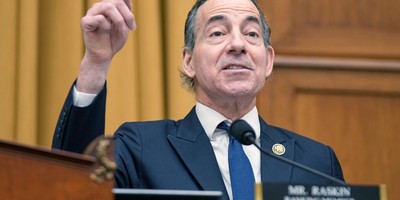Congress has recently passed a big-dollar measure that’s been advertised as a partial fix for the problems of the real estate market and also for the related woes of mortgage lenders. Once again, Congress is offering a bailout without considering the fallout.
Help for Troubled Debtors
The law would authorize the Federal Housing Administration to guarantee up to $300 billion in mortgage “work-outs.” To qualify, a borrower must demonstrate an inability to meet the payments of his existing mortgage, and his lender must agree to write down the loan balance and transfer it to a new mortgage with a lower, fixed interest rate. It’s estimated that the FHA’s $300 billion authorization would quiet the moans of about 400,000 sick mortgages.
Help for first-time buyers
This legislation offers real estate novices a tax credit of up to $7,500 on a first-time home purchase. The credit is repayable to the government over 15 years or from any gain on a sale, which makes it, in effect, an interest-free loan. The new law also would temporarily increase Fannie Mae’s and Freddie Mac’s credit lines with the U.S. Treasury, and it allows the federal government to buy billions of dollars worth of stock in the two companies.
Help for low-income housing programs
The law also establishes a trust fund to receive fees from Fannie and Freddie and then use the money to help low-income housing programs run by individual states.
Lots of help. And help is good, isn’t it? But consider the likely effects of the housing law.
Help for troubled debtors will reduce the supply of housing coming onto the market, since there will be fewer foreclosures. The tax credit for first-time buyers and the lifeline to keep Fannie and Freddie in the business of supporting the mortgage industry will encourage more home purchases – more demand for housing. While the effect may not be dramatic, the combination of fewer foreclosure sales and more buyers will retard the decline in housing prices.
Recommended
That’s nice if you are trying to sell, but for the economy it is more of an anesthetic than a cure. Real estate is in trouble because years of government subsidies (tax favors, loan guarantees and easy money) pushed prices to artificial heights. There is no way to undo the damage except to face up to it and let prices find their natural level. At best, the new law will drag the process out. At worst, the new law will keep the process from reaching a healthy completion.
A hurt for first-time buyers
And all that help actually hurts the people you’d think need help the most. To the extent it slows the decline in housing prices, the housing bill works as an opportunity-denier for people who today can almost, but not quite, afford to buy a house.
Continued incumbency for the inept
The troubles at Fannie and Freddie were bought and paid for by management’s years of over-leveraging. A bankruptcy trustee would have fired the people responsible. Instead, the housing law protects the two companies from insolvency, thereby allowing inept management to keep their subsidized jobs and have a shot at making still more trillion-dollar mistakes.
More encouragement for the incautious
It’s a stern truth: rescuing troubled borrowers gives encouragement to other people who are inclined to take risks too lightly. The children will be watching as the adults who borrowed recklessly are bailed out. Next year’s overextended borrowers are being schooled today.
More government deficits
All the help the government is providing costs money. The credit lines to Fannie and Freddie and the implicit guarantee of their debts may cost a lot of money. The last thing the politicians want to do is to decide who ultimately will pay for all the help. So they add the cost to the government’s debt. They’ll let tomorrow pay.
























Join the conversation as a VIP Member